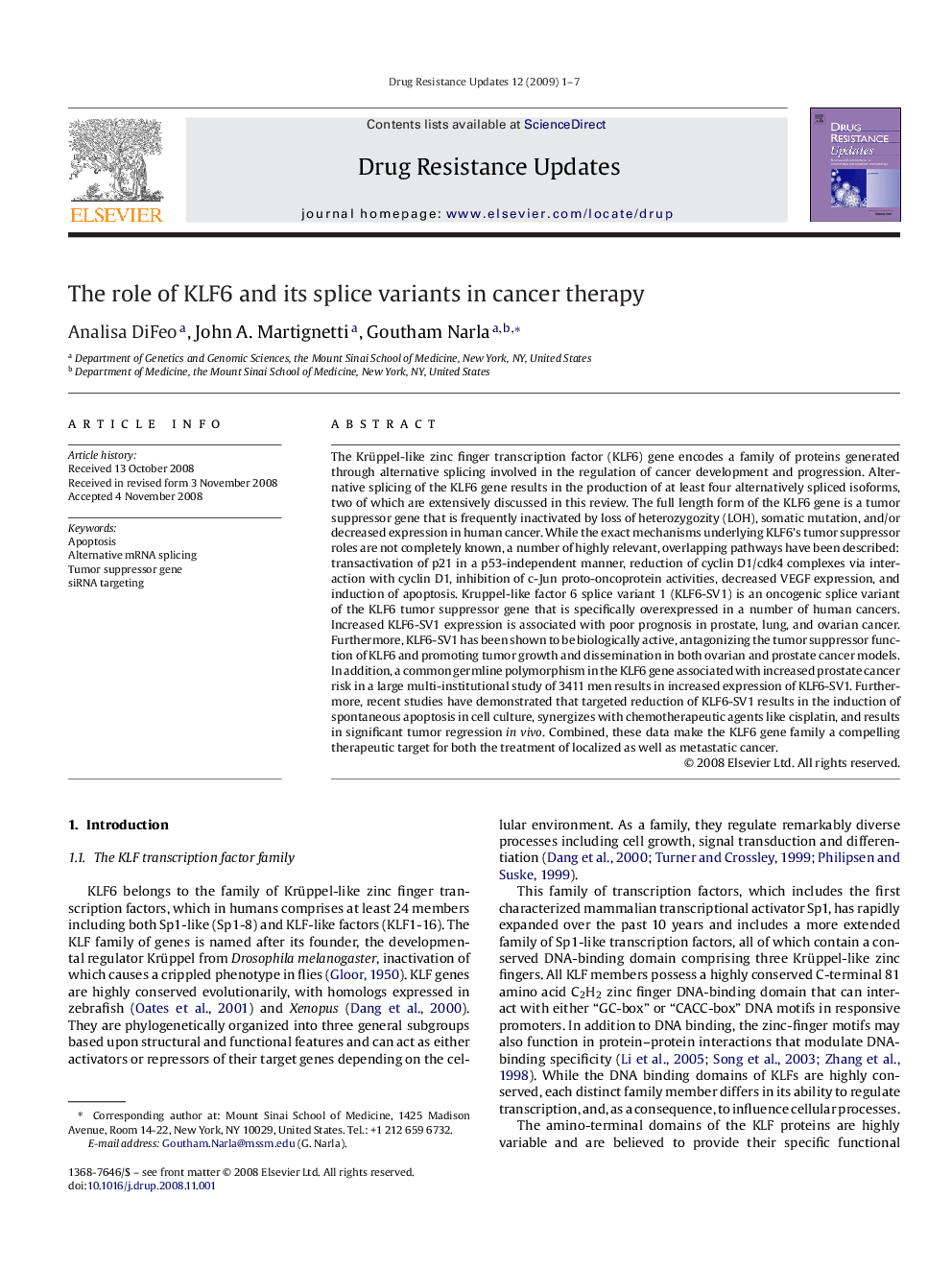| کد مقاله | کد نشریه | سال انتشار | مقاله انگلیسی | نسخه تمام متن |
|---|---|---|---|---|
| 2120483 | 1546855 | 2009 | 7 صفحه PDF | دانلود رایگان |

The Krüppel-like zinc finger transcription factor (KLF6) gene encodes a family of proteins generated through alternative splicing involved in the regulation of cancer development and progression. Alternative splicing of the KLF6 gene results in the production of at least four alternatively spliced isoforms, two of which are extensively discussed in this review. The full length form of the KLF6 gene is a tumor suppressor gene that is frequently inactivated by loss of heterozygozity (LOH), somatic mutation, and/or decreased expression in human cancer. While the exact mechanisms underlying KLF6's tumor suppressor roles are not completely known, a number of highly relevant, overlapping pathways have been described: transactivation of p21 in a p53-independent manner, reduction of cyclin D1/cdk4 complexes via interaction with cyclin D1, inhibition of c-Jun proto-oncoprotein activities, decreased VEGF expression, and induction of apoptosis. Kruppel-like factor 6 splice variant 1 (KLF6-SV1) is an oncogenic splice variant of the KLF6 tumor suppressor gene that is specifically overexpressed in a number of human cancers. Increased KLF6-SV1 expression is associated with poor prognosis in prostate, lung, and ovarian cancer. Furthermore, KLF6-SV1 has been shown to be biologically active, antagonizing the tumor suppressor function of KLF6 and promoting tumor growth and dissemination in both ovarian and prostate cancer models. In addition, a common germline polymorphism in the KLF6 gene associated with increased prostate cancer risk in a large multi-institutional study of 3411 men results in increased expression of KLF6-SV1. Furthermore, recent studies have demonstrated that targeted reduction of KLF6-SV1 results in the induction of spontaneous apoptosis in cell culture, synergizes with chemotherapeutic agents like cisplatin, and results in significant tumor regression in vivo. Combined, these data make the KLF6 gene family a compelling therapeutic target for both the treatment of localized as well as metastatic cancer.
Journal: Drug Resistance Updates - Volume 12, Issues 1–2, February–April 2009, Pages 1–7